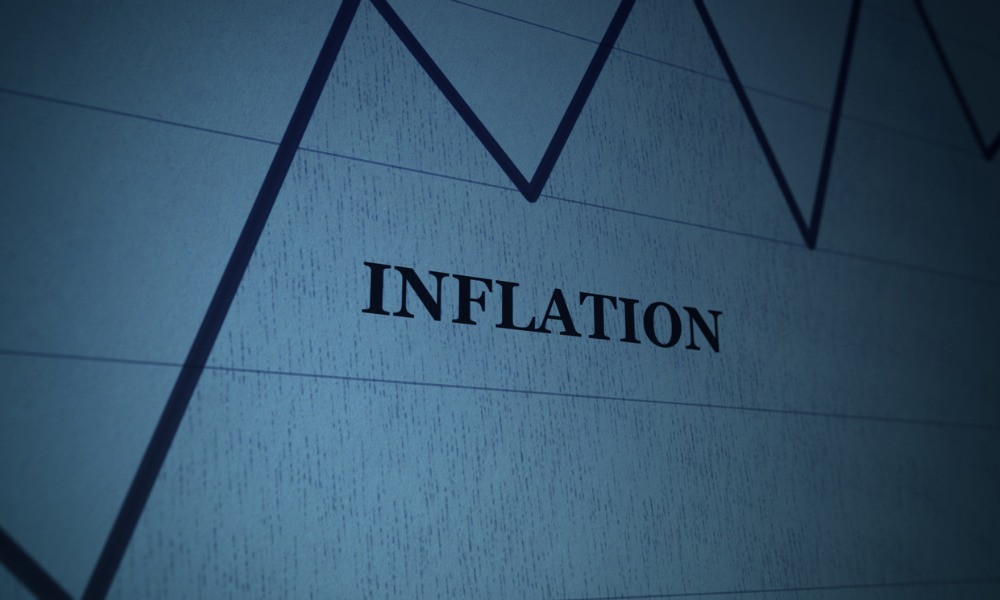Purchasing power continues to run into the roadblock of steadily rising expenses

Reaching its highest levels in the past 30 years, inflation has now moved into the top three concerns Canadians have about their long-term finances for the first time in more than a decade, according to a survey by the Royal Bank of Canada.
Statistics Canada recently reported that annual inflation reached 4.8% in December, up by 0.1% from November and registering its fastest rate in three decades. December was also the ninth straight month that the rate exceeded the Bank of Canada’s 1%-3% inflation target.
“Inflation is limiting the ability of Canadians to increase any savings, as it continues to drive up the costs of fixed expenses – a key savings barrier referenced by 29% of poll respondents, with the largest number of these (40%) being aged 25 to 34,” RBC said. “A majority (85%) of this younger age group also worries the most about trying to balance saving for today versus saving for their future.”
Read more: Many households’ finances teetering on the edge – MNP
Nearly half (48%) of Canadians also said that they have put financial plans in place, with 86% admitting to feeling more optimistic about their financial futures because of those plans.
Another factor pointing to the increased concern surrounding inflation and long-term wealth is the resurgence of registered retirement savings plans.
“After seven years of trending downward – and last year’s historic low of 46% – RRSPs have rebounded and now over half (53%) of Canadians have RRSPs in place to save and invest for their retirement,” RBC said. “Also, within those RRSPs, more Canadians are holding mutual funds (36% vs. 30% last year), stocks (20% vs. 14%) and ETFs (11% vs. 7%).
Investment portfolios have reached increased prominence as well, with the share of Canadians building these portfolios rising from 25% to 28% last year.
“Of particular note, younger investors aged 25 to 34 are also expressing the most interest in building these portfolios (32%),” RBC said. “Since the onset of the pandemic, these younger investors are also focusing more attention on the value of their investments (22%) and almost half (48%) indicate they are willing to pay fees if this offers the opportunity to gain higher returns on those investments.”



